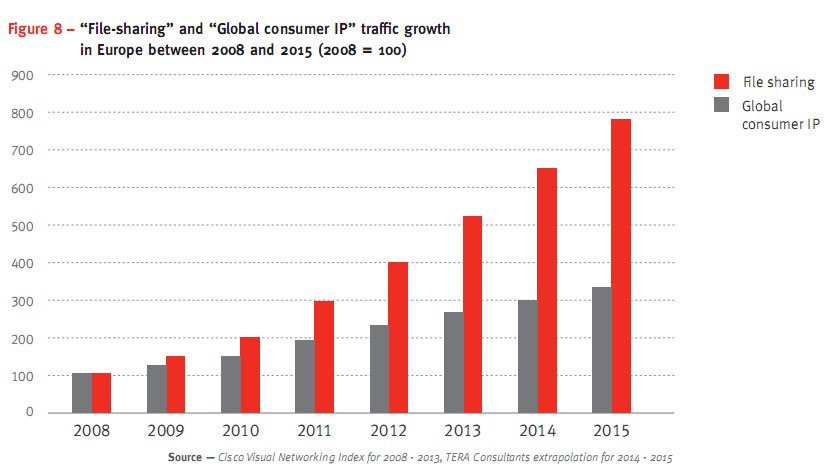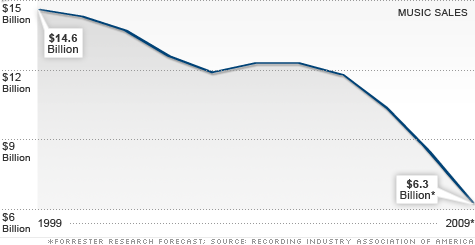A Massive Shift Is Underway!
Submitted by Capitalist Exploits on 04/03/2016 19:13 -0400I was abruptly awoken yesterday by a "PMS day." A Richter-like force, brimming under the surface, evidenced by the stomping, grumbling, and frustration that accompanies this phenomenon. As a husband, I’m grateful for the warning signs; I can hide (I mean prepare) accordingly.
It's not hard to see change when it's upon us. Identifying it ahead of time is a little bit trickier, but not much. The signs, like a grouchy wife, are often there if we care to look.
I have often wondered if the average Joe in the midst of the Industrial Revolution ever looked around and noticed the change that was coming?
The amazing changes witnessed since the late 1700’s are easily understood in hindsight. What is not commonly understood (in large part because we’re in the midst of it) is that today we stand on the brink of a technological revolution that will fundamentally alter the way we live work and play.
But first, to understand the future we need to look to the past.
Let's take the aforementioned Industrial Revolution, which can be broken down into 3 key areas of innovation and disruption:
The First Stage
The first stage of the Industrial Revolution, around 1780, entailed harnessing steam power. Remember those old steam trains and water mills seen now only in children's books and third world hell holes? Well, what they did was mechanize production, resulting in huge advances in manufacturing.The Second Stage
Around 1870 electricity, which provided mechanization and production at a greatly increased level, in large part replaced steam.The Third Stage
Around 1970 the use of information and electronics to amplify, enhance, and automate production came into the fold.Fast forward to 2016 and what is upon us, and taking place at an exponential rate, is a revolution driven by a coalescing and a convergence of multiple technologies, each providing a magnifying effect on one another.
Just as an amazing chocolate cake requires a number of ingredients, today we have multiple ingredients (technologies) coming together and forming entirely new systems. In doing so, these technologies are completely replacing and disrupting existing industries, products and power structures.
It's easily one of the most exciting and potentially frightening times to be an entrepreneur, investor and consumer. Frightening because expecting things to be the way they've always been is the most dangerous thing one can do; exciting because the tsunami-like shift of power and capital taking place at ever increasing speed affords incredible opportunity.
If you've read the media over the past couple years you may be familiar with peer-to-peer lending, crowdfunding, crowdsourcing, Bitcoin (both the currency and the blockchain) or the sharing economy, which includes services such as Uber, Airbnb, Wikileaks and even Tesla.
A common theme with all of these is that they disrupt an existing industry which often enjoys a stranglehold.
Peer-to-peer lending, for instance, usurps investment banks and lending institutions. Bitcoin and crypto currencies usurp the need for central banks, financial institutions, stock exchanges, custodians, notaries, and credit cards to name but a few. Then we have 3D printing, which disrupts manufacturing by allowing individuals to design, create, and produce customized goods in their own home for less than the mass-produced alternatives.
Fighting is Futile
Fighting technology is a losing battle. You may as well fight oxygen.Take for example the case against Kim Dotcom. The US Government have spent millions of dollars doing all that they can to shut down file sharing, and they chose little Kim and his company Megaupload as the poster child designed to teach "all who may dare to follow" a lesson.
Here's how successful they've been...

Why are these exponential technologies so successful? That answer is the same one that explains why the US military has been wildly unsuccessful in fighting Al Qaeda. It's a lesson they should have learnt from the Soviets 20 years earlier.
The answer is decentralization.
Attacking a bunch of goat herders in Jesus sandals, who are scattered across inhospitable terrain, with factions on every continent, is like trying to defeat soil.
Technological advancements were the game changer for the terrorists. Not only are terrorists decentralised, but the cost of military hardware and advancements in technology have altered the global power structure.
Not only do these exponential technologies disrupt industries, they will also bring about disruptive changes in political regimes and even borders at an increasing speed.
The Soviet Example
1986 was the year that the Mujaheddin first shot down a Soviet Mi-24 Hind helicopter. The Ruskies had been in Afghanistan for 7 years enforcing their will. A military superpower to be reckoned with. 3 years later they were gone, tail between their legs.Why?
The US-made Stinger missile. Costing less than $75,000 it was a steal, easily operated by a single man. And sporting a kill ratio of 70%, the Stinger in the hands of a bunch of goat herders changed the economics and success of large scale, centralised warfare.

Who would have guessed that a shoulder held missile, manned by a poverty-stricken group of villagers, would stave off a military superpower?
While the Stinger missile and cyber warfare today massively disrupt the existing balance of power, seemingly innocuous technologies we're all now used to, and consume regularly, do much the same thing.
Authorities tried to stop Airbnb as well as Uber. City officials have banned their use, lobby groups have fought and continue to fight them, and yet both have continued to grow.
They grow not because of the companies themselves marketing heavily, but because their users share it. When something is fundamentally useful and valuable to the consumer, human nature is to share it.
If a particular product is centralised and found in a large factory, shutting its operations would be a cinch. This is why labour unions dominated society during the industrial era.
Today that's not the case. In order to stop product use each and every consumer would need to be stopped.
The world we’re living in includes billions of people connected digitally, holding unprecedented processing power, storage capacity, and access to knowledge that only a decade ago was un-achievable to even the most powerful of the world's leaders.
If centralized powers are to fight this trend they will be fighting a decentralized network of billions of individuals scattered across the globe. Borders matter less and less in our connected world.
Networks which are viral, decentralised and useful, are incredibly difficult to stop, and with every passing day they grow in strength. Once a tipping point is reached they become part of the very fabric of society and things are never the same again.
The Disrupted
Napster was one of the early movers in sharing music online. In 2001 it was shut down by the authorities. Much like file sharing mentioned above, today music sharing is multiples of what Sean Parker ever had in mind.The disrupted?

Here we have traditional music sales. Anyone who was making a living from selling CDs has had to find something else to do.
At our upcoming Seraph Summit in Del Mar, California, attendees will get to meet Andres Barreto, the founder of Grooveshark, another music sharing service that post-dated Napster. Disruptive technologies are top of the list of subject matter.
The disruptive technologies reshaping how we live, work and play have a number of characteristics:
- They defy the status quo. Whenever you disrupt the status quo you are smashing head long into people's livelihoods. It's never pretty. This explains why Julian Assange is still holed up in the Ecuadorian embassy in London. It explains the list of lawsuits against Tesla by the automotive industry. It explains the banking industries fear of, and rejection of, Bitcoin.
- They disrupt the balance of power. To point number 1 above, it's not possible to disrupt existing power structures without defying the status quo and it's not possible to defy the status quo, succeed and simultaneously not disrupt the balance of power.
- They are decentralised. There are only two ways to change incredibly powerful institutions and power structures. One is the industrial age method of head-to head-combat. War! The other is with exponential decentralised technology, which is almost impossible to stop.
- They are transparent. Bitcoin is open source. Tesla's technology is open source. Crowd funding and peer-to-peer lending all function with transparency embedded.
- Distribution. They can be distributed rapidly, efficiently and at scale.
Perhaps the most important point to consider is point number 5. The thing to understand is how exponential technologies permanently reshape the demand curve.
The Impacted
There are few industries that are not being (or will not be) impacted by this tidal wave of disruption. The shift from centralized industries to decentralized is unmistakable and accelerating every day.When an entire host of accelerating technologies come together, working off each other, the results are spectacular. New systems are formed with increasing speed and old systems fragment and fall apart as their inherent weaknesses become increasingly evident.
I recently had an excellent conversation with a friend on this very topic. I recorded it and if you're a subscriber you'll get it early next week. He's also joining us in Del Mar, California in a few week's time, and if you're a forward-thinking investor you should consider joining us too.
Seriously, if you wish to get a deep understanding of the most powerful trends in motion today and how they are shaping the world then you need to book your space now before we're full.
The timing could not be better. The changes afoot today are causing a shift of wealth the magnitude of which promises to be one of the largest in human history.
The Elephant in the Room
I'll leave you with a question.What entity or entities can you think of that are exhibiting the following traits?
- Dishonest, shielding information from the public who are their "clients"
- Centralized
- Lacking in transparency
- Hold, via coercion, the balance of power
- Chris
"This kid came up with Napster, and before that, none of us thought of content protection." - Morgan Freeman




